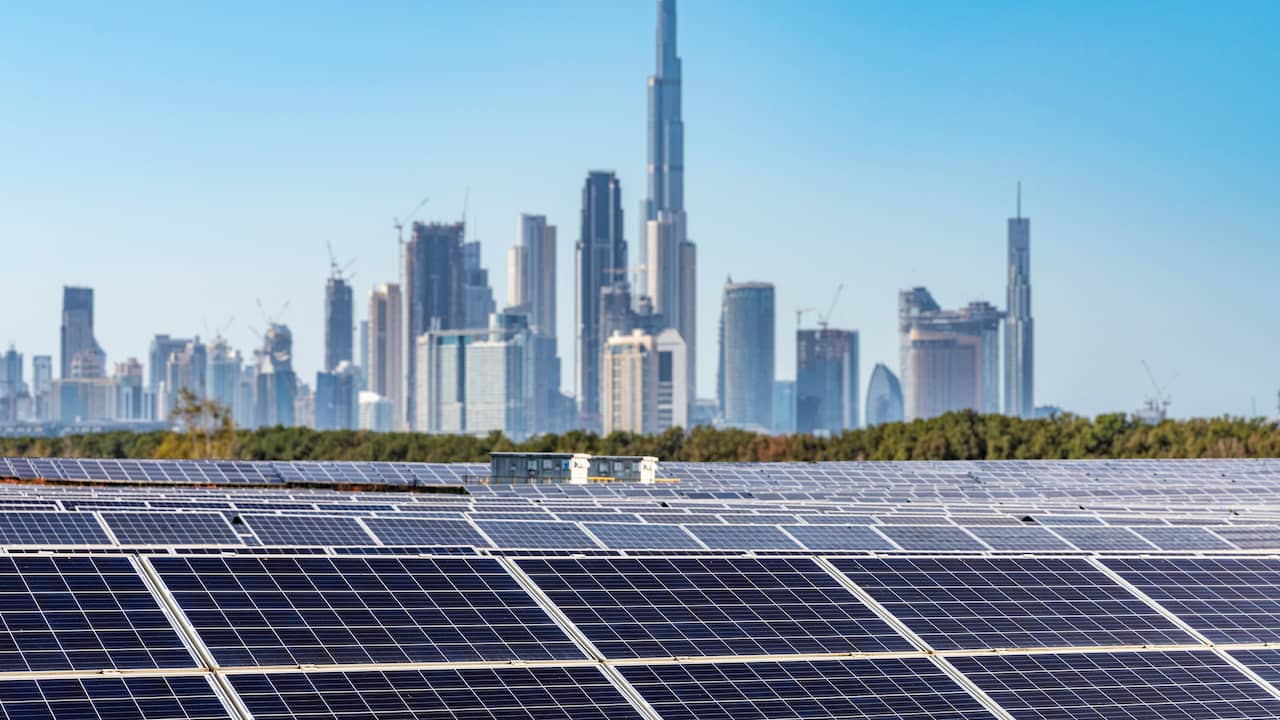Oct 16, 2023 at 10:28 PM Update: 5 hours ago
A global statement on phasing out fossil fuels. It was thought in advance that the EU wanted to focus strongly on this at the upcoming climate summit in Dubai. But then the Member States must first convince each other. That didn’t work out well on Monday.
The climate ministers of the 27 EU countries met in Luxembourg on Monday to agree on a joint course for the UN summit. It starts on November 30 in the United Arab Emirates and will last two weeks.
There are concerns about the location in advance. The chairman of the climate summit is also the CEO of an oil company. Yet it seemed that the EU wanted to make a serious attempt at this 28th edition of the UN climate negotiations to reach a joint statement with 198 countries on the phasing out of fossil fuels.
But a small problem arose in Luxembourg on Monday: no agreement could be reached within the EU on a strong statement. It was known in advance that the Czech Republic, Hungary and Italy, among others, did not like it. And even after a day of negotiations, they made no compromises on Monday.
Previous attempts under pressure from oil states failed
Al sinds 1991 an attempt is made to state in the final declaration of the climate summits that government subsidies for coal, oil and gas are at odds with the ambition to stop climate change.
Proposals for such a joint statement were invariably dropped under pressure from oil-producing countries. Last year at the climate summit in Sharm el-Sheikh, this happened under pressure from Saudi Arabia. Host country Egypt also saw no point in it at the time.
The closest the world came was two years ago at the climate summit in Glasgow. The modest breakthrough was that fossil fuels were mentioned for the first time in the final declaration.
On the final day, that text was significantly watered down under pressure from China and India. Instead of stopping the use of coal, it was ‘reduced’. And the part about phasing out fossil fuel subsidies had the word ‘inefficient’ added at the last minute: “phase out inefficient fossil subsidies“.
That word can be interpreted in different ways, which added a loophole to the agreement so that little change would have to be made in practice.
2:55Play button
‘End to fossil investments will be Glasgow’s breakthrough’
The tricky word of 2023: ‘unabated’
Wopke Hoekstra, the brand new European Commissioner for the Green Deal, also experienced last week that every word is weighed in such statements. The tricky word this time was: ‘unabated‘, which can best be translated here as ‘without compensation’.
A call about phasing out fossil fuels could therefore be interpreted more broadly. For example, fossil energy projects that capture part of their CO2 emissions and put them underground can then be exempt.
Upon arrival in Luxembourg on Monday, Hoekstra hastened to clarify: he does mean a complete end to fossil fuels. According to Hoekstra, the use of underground CO2 storage should be reserved for some sectors that have no alternative.
Yet it turned out to be a persistent word. Even after a day of negotiations, ‘unabated’ is back. The EU is therefore making a toned-down appeal to the climate summit in Dubai.
Climate Minister Rob Jetten is not happy with that. On behalf of the Netherlands, he would have preferred to see a more powerful statement. Even though Jetten emphatically does not rule out CO2 storage, under certain conditions: “There is also room in the Netherlands for certain sectors to use CO2 storage. But the capacity is limited, so we have to be smart about it.”
Jetten does not want a stricter EU target for the time being
Jetten is not satisfied with the results at last year’s climate summit. “We as the EU were on the sidelines in Sharm el-Sheikh for a long time. Now we have to be at the center of the negotiations.”
The question then is which theme that should be. Discussions should also start in Dubai about tightening the emissions targets of all countries. The EU’s official target is for greenhouse gas emissions to be 55 percent below 1990 levels by 2030. In practice, the European energy transition appears to be going somewhat faster: the EU is now heading for 57 percent, as it turned out last year.
There have been calls for some time to adopt that higher percentage as an official climate target and thus tempt other countries to take an extra step. Jetten would rather not lose that card immediately, as he said prior to the meeting: “Let’s hold on to that 55 percent. We can show the rest of the world that if you start working with good policy, you can achieve your own objective.” can surpass.”
EU climate target in words slightly tightened
Yet on Monday evening, the tightening of the EU climate target is presented as a small success: the word ‘at least’ has now been added in front of it: emissions between 1990 and 2030 by at least Reduce 55 percent.
If all countries actually achieved their existing climate goals, the world would warm up to approximately 2.5 degrees. This recently emerged from a UN report that should serve as a basis for the negotiations in Dubai. This means the world is in a much better position than in 2010, the report shows. It is a snapshot: the world’s climate trajectory can improve further or worsen again.
2023-10-16 20:28:00
#weakened #call #fossil #energy #oil #state #Dubai #climate


